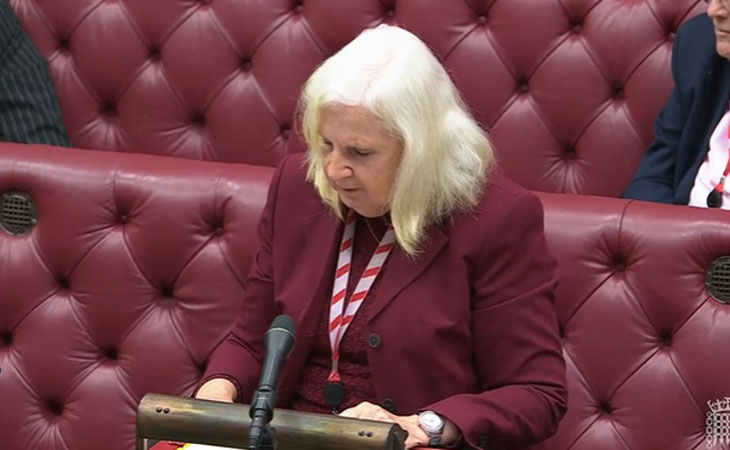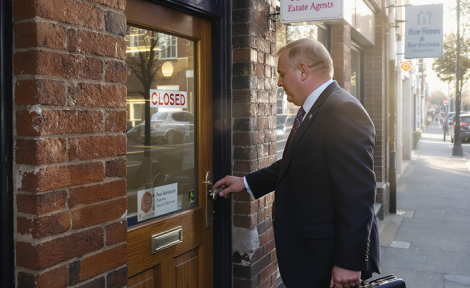REFORMS: Minister refuses to compromise on pet damage protection for landlords
Lords' housing minister says Government does not accept that landlords and agents need more protection from pet damage other the current five-weeks' deposit.

Almost all the amendments tabled last night during the latest and possibly final parliamentary debate of the Renters’ Rights Bill were rejected by the Lords in several votes on what have been the key battle grounds ahead of Royal Assent.
The most contentious of these is how the Bill affects tenants with pets but also includes evictions, dealing with shared ownership ‘landlords’, student accommodation exemptions and landlord prosecutions for non-compliance.
The pets debate kicked off with many Lords urging that landlords must have some mechanism to recoup pet damage costs if, as Labour wants, more of them are to accept tenants with cats and dogs, which only 7% do at the moment.
The Government says that the standard five-week deposit is sufficient to cover pet damage, and that if that proves not to be the case, it will later amend the Tenant Fees Act to allow for higher or additional deposits for pets.
But despite the long debates on this subject, landlords and agents will not be able to either ask for larger deposits or mandate pet insurance, before giving tenants with cats and/or dogs a tenancy once the legislation goes live.
Pet damage
During the debate Tory Baroness Scott highlighted how Propertymark research recently showed that 85% of letting agents and landlords had reported pet damage as an ongoing issue.
“Allowing landlords and agents to collect a deposit of one to three weeks’ rent is a reasonable and balanced step,” she said – but no avail as the fresh amendment to the Bill as tabled did not get voted through on division.
There was also an emotional debate around the new restrictions within the bill that will prevent a landlord remarketing their property to rent for 12 months, with several Lords calling it both punitive and disproportionate and calling for a six month period instead.
The peer sponsoring the amendment, Lord Cromwell, went further saying it smacked of a ‘renters’ revenge’ on landlords including on those who had been good landlords in the past.
One amendment that the Government did agree to compromise on was the issue of those living in shared ownership blocks affected by the Grenfell fire safety and remediation scandal, and who have been become ‘reluctant landlords’ by moving out of their apartments and renting them out because selling their homes is currently impossible.
Student rooms
The other big amendment urged the Government to reconsider the Bill’s exclusion of one and two-bedroom or smaller student accommodation. At the moment it only covers HMOs or larger shared student houses.
One other area where the housing minister in the Lords, Baroness Taylor (maiun image), agreed to compromise also was the thorny issues of whether councils should meet a civil or criminal standard of proof when seeking to prosecute rogue landlords or letting agents, with a fudge having been hammered somewhere in between the two.
Propertymark tells The Neg that the Bill now return to have the final version ‘signed off’ and that therefore Royal Assent is now ‘not far away’.
Reaction
William Reeve, CEO at Goodlord

“Despite rumours that they would dig their heels in, the House of Lords has clearly run out of steam.,” he says.
“Once again, demand amongst the Lords for both a pet deposit scheme and changes to Ground 4A sparked much debate, but ultimately the Government won out and these amendments won’t become part of the final bill.
“With all votes for the outstanding amendments going in the Government’s direction, the process of ‘ping pong’ comes to an end and the bill will move towards Royal Assent following final approval in the Commons.
“This brings to a close years of speculation, u-turns and false starts. We are now hurtling towards these new rules becoming a reality.
“Worryingly, a large proportion of agents still aren’t ready for it: according to our latest industry analysis, sole operator agents are the least ready, with just 4% describing themselves as “very prepared”. Only around a quarter of agencies with 2-10 staff members feel well prepared for the changes, while less than half (47%) of agencies with 11 or more staff members say they are completely ready. But they can no longer bury their heads in the sand – the rubber is truly about to hit the road.”










